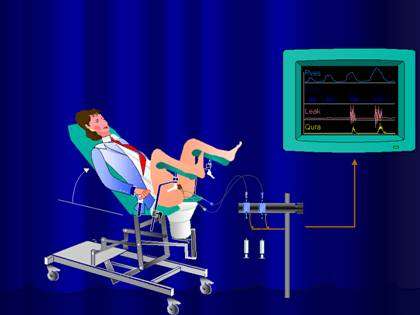
September 7, 2024
Understanding Fecal Incontinence After Pregnancy Postpartum Saint Luke's Health System
Urinary Incontinence In Women The postpartum duration begins right after the baby's distribution normally lasts 6 to 8 weeks, and finishes when the mommy's body has actually virtually returned to its pre-pregnant state. The postpartum period is essential for both temporary and long-lasting health and wellness and health for a female and her newborn. This activity must aid the interprofessional group supply comprehensive postpartum take care of the brand-new mother. If you're having problems throughout your postpartum recuperation, don't hesitate to call your doctor at any moment. And don't keep back on sharing your feelings with your partner, or connecting to close friends and member of the family for aid with the baby. Your physical and emotional health is necessary, so see to it to give on your own a break when you need it one of the most. According to the National Institutes of Wellness, ladies that have a natural distribution are 50% most likely to experience urinary incontinence than females who supply by C-section. If you desire your baby to share your bed in hospital or in the house, let your midwife understand so they can assist with security advice. You and your partner might be long past due for reconnecting, possibly during a date night.When Should I See My Medical Professional?
Nonetheless, most females that deliver vaginally continue to be continent, so nobody is recommending that all females have cesarean areas to avoid the possibility of later urinary incontinence. We plainly do not understand all the factors that identify that establishes urinary incontinence, so cesarean area would certainly not be required in lots of ladies with long or difficult labors. With our existing understanding, lots of women would certainly need to have cesareans in order to prevent one female from creating urinary incontinence. The prolonged pain and recovery from cesarean at a time when the mom wants to be focused on looking after her infant are also not in anyone's best interest. The vast bulk of females that deliver do not develop urinary incontinence. In many cases, the damages produced by childbirth repairs itself in time as the cells go through the normal recovery procedure.- Ice the perineal area for the very first few days and have lots of remainder.
- If your work or birth was aided, you will certainly remain much longer at medical facility.
- We provide lots of therapy alternatives that can boost the mom's quality of life.
- If you are questioning what happens instantly after delivering, a female may experience heavy bleeding after the kid is birthed.
- You might such as to take pain-relief medicine if it's suggested by your doctor.
Genital Discharge
Urinary system incontinence and pelvic organ prolapse are the most significant negative results of childbirth. Genital delivery is connected to a high rate of postpartum urinary problems, Pessary Device as well as incontinence of stool and flatulence. Being expecting and delivering can also compromise the pelvic flooring-- the supportive hammock made of muscular tissues and tissues that keeps the pelvic body organs (the womb, bladder and digestive tract) in place. One writer described the experience as a sensation of continuously remaining on an egg. These are the same muscle mass you agreement when you try to quit the circulation of pee midstream or if you were to tighten your vaginal canal around a tampon. If you maintain really feeling nervous or depressed, ensure you obtain specialist suggestions and the aid that you require. Postnatal clinical depression is common and treatable with the ideal assistance. Your busts and nipple areas will be complete and often aching as the milk is available in three to 6 days after your child gets here. Your midwife will reveal you just how to self-express to ease some of the inflammation and urge milk supply. Cramping is also a typical signs and symptom as your uterus agreements down to its typical dimension. Cramps can be more obvious when your baby is nursing. As time takes place and the normal changes of aging and weakening of the tissues takes place, urinary incontinence may result. Presently, just advanced and costly examinations like MRI or nerve conduction studies can inform if these muscles and nerves have gone back to normal. Unfortunately, there is no practical, simple method at this point for you or your doctor to know if these muscles are weakened and predestined to result in urinary incontinence. You can condemn this usual postpartum sign on the pregnancy- and delivery-weakened muscle mass around the bladder and pelvis, which might have a tougher time regulating your circulation after giving birth. You may experience this loss of bladder control while laughing, sneezing, coughing or performing a arduous task, and it's very usual after delivering. As a matter of fact, it's approximated that about half of adult women may experience postpartum urinary incontinence.Is it typical to have a hard time to pee after birth?
back on or prevent alcohol, caffeine or acidic foods. Decreasing fluid intake, slimming down or raising exercise also can ease the trouble.
Social Links